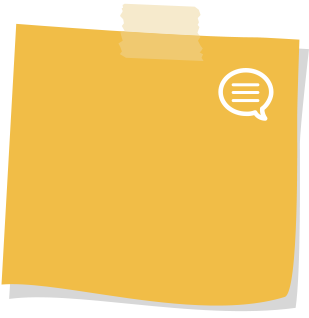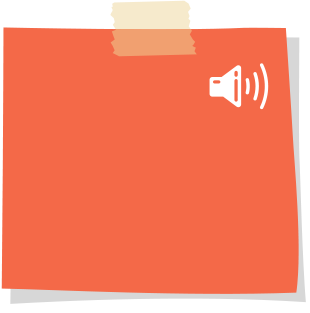English
English at Great Moor is led by Mrs Ijima.
Our English Curriculum is based on the National Curriculum.
Speaking and Listening: Children will speak to different audiences and learn to use language for effect. They are taught to listen carefully, picking out the main points of what people say and ask questions or make comments. Work in drama helps children to develop skills and they learn about how language changes in different situations, and how language is used differently in speech and writing.
Reading: Children in the school enjoy reading and read regularly from a wide-range of motivational books and texts that are the right level for them. The school uses the Accelerated Reader programme to help accurately establish the range of book that a child can not only read with fluency, but also understand.
What is Accelerated Reader?
Accelerated Reader is a computerized learning system designed to help teachers motivate, monitor and manage student reading practice.
It is an internet-based software which assesses reading age, and suggests books that match pupils’ needs and interests. Children can either read paper books that are in the programme or access an online library through the myON.co.uk website.
How is a child’s reading level assessed?
Children are given a computerised reading assessment known as a STAR reading test.
This test uses multiple-choice questions that adjust depending on the child’s responses. Successful responses will lead to more challenging questions to test the child’s full reading ability.
After completing the test, a computerized score reflecting the child's ZPD (Zone of Proximal development) reading range will be generated.
How does a child get a reading book?
All of the books that are in school that are within the Accelerated Reader Programme have an orange sticker on the spine with their ATOS book level. (Each year group has bookshelves containing AR books.) The sticker corresponds with the children’s ZPD ranges. A child selects a book of their choice from the ones that fall within their ZPD range.
If the child is reading a book from within their ZPD range, it should be at exactly the right level for them to read it with understanding and without too much difficulty. Once the child has read the book, they take an online quiz through AR and if they successfully answer the questions, they receive points towards their targets which is motivational. Prizes and awards are given for Accelerated Reader.
In addition to Accelerated Reader, Children are taught to use their knowledge of words, texts and the Reading Strategies to understand the meaning of what they read. Children’s reading skills are developed through a range of reading activities within English and other subjects. Reading in English is taught primarily through the vehicle of the class text although other resources may be used to focus on different text types and reading skills. The children benefit from both whole-class reading sessions and regular individual reading in school.
Writing: Pupils are taught to write in a range of ways to entertain, inform, explore feelings, explain, persuade, discuss, review and comment. They are taught to plan and draft their work and write for a range of different audiences and purposes. There is a clear focus on developing children’s knowledge and effective use of spelling, punctuation and grammar. Writing is developed not just in English, but across the curriculum to enable the children to write for different purposes.
Children learn to write legibly in joined up and printed styles and are taught to present their work well.
Spelling and Grammar: Spelling and grammar teaching follows the National Curriculum requirements at Key Stage 2.
Children are taught spelling and grammar through regular short-bursts in daily English lessons. These lessons are often linked to the class text as we believe in teaching grammar terminology in an embedded manner by discussing language in texts and applying it in writing. Grammar lessons are not taught separately from the rest of the English curriculum as the components taught need to have a context for children to be able to see their purpose and effect.
Children have their own, weekly spelling lists to practise in their Purple Spelling Books. (We expect children to also practise these spellings at home so the books are sent home.) The children should focus on breaking these words up into their sound parts by “sounding them out” (just like in reading). They can then try to spell the word in parts and identify which sound part they got wrong and create a way to remember this bit. This focus on the sounds of the spellings rather than the letters ties in with our Sounds-Write phonics programme.
In addition to their individual word lists, daily spelling lessons focus on a weekly spelling pattern/tendency or supporting the children to learn the Year 3/4 or 5/6 Statutory Word lists. (Please see in the files.)
Phonics: We use the Sounds~Write phonics programme to support our children to learn to read, spell and write.
Our aims for teaching phonics
If children are to develop as competent readers and writers, it is vitally important that they have a secure knowledge and understanding of the letter sounds and systems of the English language.
- To close any gaps in the children’s knowledge and application of phonics.
- To ensure that our children develop as competent readers and writers.
- To equip the children with a secure knowledge of the letter sounds and spelling system of the English language.
- To develop their phonic skills in a systematic way using the Sounds~Write phonics programme
- To establish consistent practice, progression and continuity in the teaching and learning of phonics in Key Stage 2.
Teaching and Learning
- We deliver high quality, systematic Phonics sessions, following the Sounds-Write programme.
- We provide training and support for staff.
- After initial whole-class phonics sessions in Year 3, phonics is taught through targeted interventions across the school.
- We ensure lessons are active, and well-paced thus ensuring the engagement of all children.
More information about the Sounds~Write phonics programme can be found here: https://www.sounds-write.co.uk/parents-carers/support-for-parents-carers/







